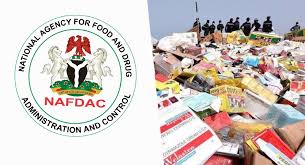Nigeria has intensified efforts to improve drug safety monitoring as the National Agency for Food and Drug Administration and Control (NAFDAC) pushes forward with its pharmacovigilance agenda to protect public health.
At a media briefing held in Lagos, the Director of Pharmacovigilance at NAFDAC, Dr. Uchenna Elemuwa, explained that pharmacovigilance—the science of monitoring the safety of medicines—is key to ensuring that Nigerians are protected from harmful drug reactions.
“Pharmacovigilance is the science and activities related to monitoring the safety of medicines used by our population. It ensures that medicines are effective while identifying and mitigating risks associated with their use,” she said.
Reactions to Drugs Vary, Public Needs More Awareness
Dr. Elemuwa stressed that drug responses differ from person to person, which is why it’s essential to raise awareness among healthcare providers and the general public.
“The way Mr. A reacts to a drug may not be the same as Mr. B. That’s why it’s crucial to educate healthcare providers, marketing authorization holders, and the public about pharmacovigilance,” she noted.
She said Nigeria is addressing this through the Saving Lives and Livelihood Project, a national programme focused on building a stronger pharmacovigilance infrastructure. The project is equipping hospitals with the tools and knowledge to monitor and report Adverse Drug Reactions (ADRs).
National Pharmacovigilance Center and Global Collaboration
NAFDAC operates a National Pharmacovigilance Centre, established in 2004, which coordinates all pharmacovigilance activities across the country. The centre also maintains BGFLOW, Nigeria’s national pharmacovigilance database, which feeds into the World Health Organization (WHO) global system.
Despite these structures, Dr. Elemuwa revealed that Nigeria recorded only 4,600 ADR reports in 2024, representing just 10% of the WHO benchmark for a country of over 200 million people.
“Pharmacovigilance is no longer business as usual. Patient safety must be at the center of our healthcare system,” she said, urging Nigerians to report any side effects from medicines.
More Public Participation Needed
Dr. Adeline Osakwe, the Project Coordinator for the Saving Lives and Livelihood Project, supported the call for public participation.
“Pharmacovigilance is about safety monitoring, and it requires everyone’s participation,” she said.
She encouraged Nigerians to use platforms such as the Med Safety App, where individuals can directly report any side effects or reactions they experience from drugs.
“We are sensitizing the public to report ADRs. Everyone has a role to play in building a safer healthcare system,” she added.
Financial Constraints, Call for Partnerships
While government commitment remains strong, Dr. Osakwe acknowledged the funding limitations that come with building a comprehensive safety monitoring system.
“The government cannot do this alone. That’s why we are partnering with stakeholders to ensure robust ADR monitoring,” she said.
She noted that collaboration with private and international organizations is critical for long-term sustainability.
Health Experts Support Integration Into Local Systems
Dr. Odionosen Ewakhamen of the Nigeria Centre for Disease Control (NCDC) also spoke during the briefing. He emphasized that pharmacovigilance should be integrated into Nigeria’s primary healthcare system, allowing local health workers to detect and report issues in real-time.
“We need to make pharmacovigilance part of routine health services in Nigeria. Only then can we truly protect our population from unsafe drug reactions,” he stated.
The Lagos event brought together several health experts, regulators, and development partners who reiterated the urgency of improving Nigeria’s pharmacovigilance system.
The agency’s goal is to ensure that patients, pharmacists, doctors, and regulatory authorities work together to create a safer medication environment.
As NAFDAC scales up training for health workers and expands public awareness campaigns, expectations are high that more Nigerians will become informed about ADRs and participate in protecting the country from harmful drugs.
